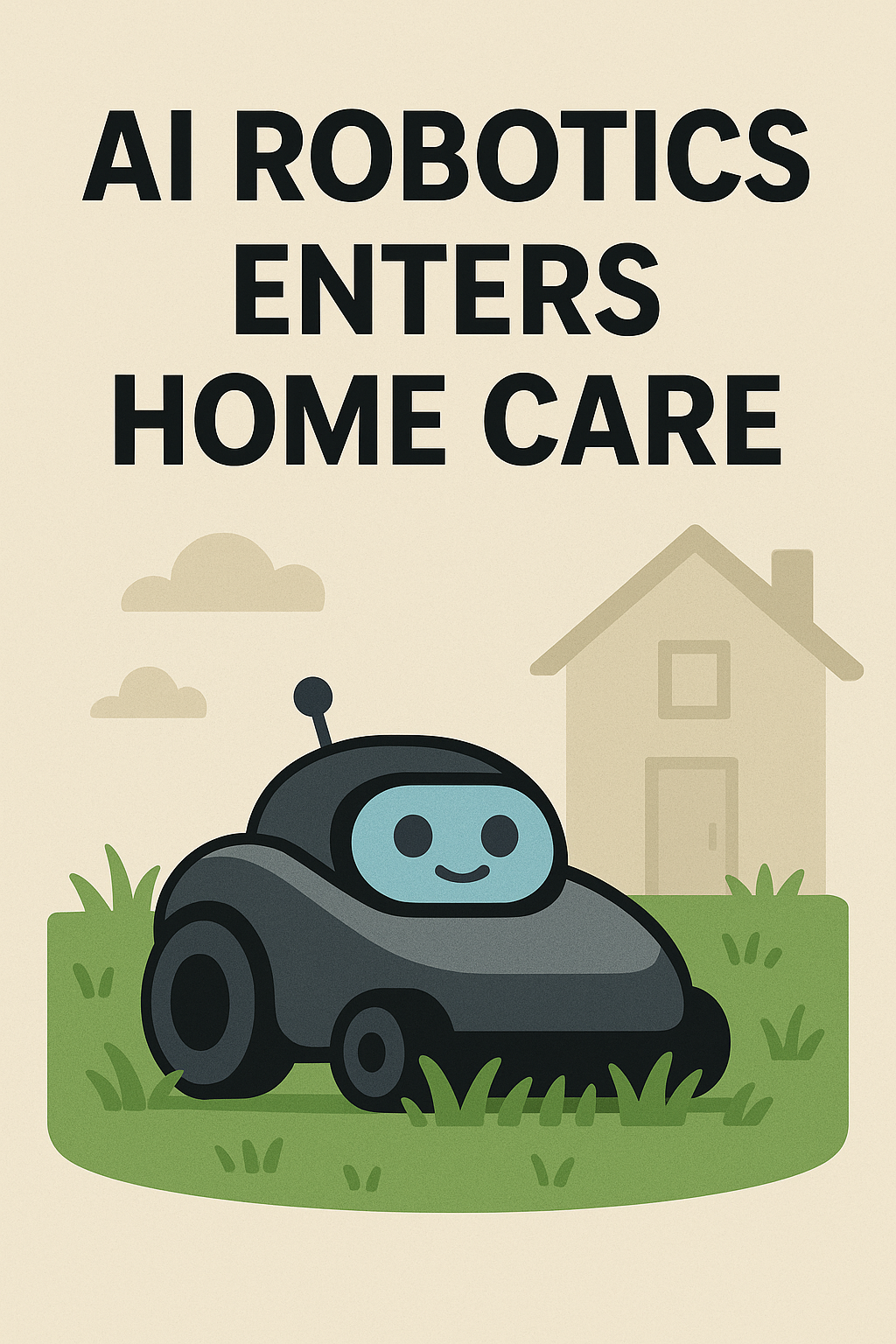The world is changing at an unprecedented pace, and at the heart of this transformation lies artificial intelligence (AI). Once confined to science fiction, AI has now woven itself into the fabric of our daily lives, often in ways we barely notice. Among the most fascinating developments in this field are AI agents—autonomous systems designed to perceive their environments, make decisions, and act independently to achieve specific goals. From virtual assistants scheduling our meetings to self-driving cars navigating busy streets, AI agents are no longer futuristic concepts but vital components of modern existence. In this blog post, we’ll explore the rise of AI agents, their impact on everyday life, and the opportunities and challenges they present as they become increasingly autonomous.
What Are AI Agents?
At their core, AI agents are software or hardware systems capable of performing tasks without constant human intervention. Unlike traditional programs that follow rigid, pre-defined instructions, AI agents leverage machine learning, natural language processing, and other advanced techniques to adapt, learn, and respond to dynamic situations. Think of them as digital or physical entities with a degree of “intelligence” that allows them to interact with the world in a goal-oriented way.
There are varying levels of autonomy among AI agents. Simple agents, like a thermostat adjusting room temperature, operate based on basic rules. More complex agents, such as chatbots or recommendation algorithms, analyze data and user behavior to provide personalized responses. At the cutting edge, highly autonomous agents—like drones delivering packages or AI-powered robots in warehouses—combine sensory input, decision-making, and physical action to complete sophisticated tasks.
The Evolution of AI Agents
The journey of AI agents began decades ago with rudimentary systems like the Shakey robot, developed in the late 1960s. Shakey could navigate a room and move objects, but it was slow and limited by the computing power of its time. Fast forward to today, and the convergence of powerful hardware, vast datasets, and breakthroughs in AI research has unleashed a new era of autonomous systems.
One key milestone was the advent of machine learning, which allowed AI agents to learn from experience rather than rely solely on hardcoded rules. Deep learning, a subset of machine learning, further accelerated progress by enabling agents to process unstructured data like images, audio, and text with remarkable accuracy. Companies like Google, Amazon, and Tesla have since pushed the boundaries, deploying AI agents that drive cars, manage logistics, and even assist in medical diagnoses.
AI Agents in Everyday Life
The proliferation of AI agents is most evident in the subtle ways they’ve integrated into our routines. Let’s explore some of the most prominent examples.
- Virtual Assistants
Siri, Alexa, and Google Assistant are now household names. These AI agents listen to our commands, set reminders, answer questions, and control smart home devices. What started as gimmicky voice recognition has evolved into systems that understand context, anticipate needs, and integrate with other technologies. For instance, asking Alexa to “turn on the lights” might soon evolve into it proactively dimming them based on your evening routine. - E-Commerce and Personalization
Ever wonder how Netflix knows exactly what show you’ll binge next or how Amazon suggests the perfect gift? AI agents power recommendation engines that analyze your browsing history, preferences, and even social trends to tailor suggestions. These systems don’t just save time—they shape our consumption habits, often nudging us toward choices we might not have considered. - Autonomous Vehicles
Self-driving cars from companies like Tesla and Waymo are perhaps the most visible symbols of AI autonomy. Equipped with cameras, radar, and AI algorithms, these vehicles interpret road conditions, avoid obstacles, and make split-second decisions. While fully autonomous cars aren’t yet ubiquitous, their presence is growing, promising to reduce accidents and redefine transportation. - Healthcare Innovations
In hospitals, AI agents assist doctors by analyzing medical images, predicting patient outcomes, and even suggesting treatment plans. Robotic surgeons, guided by AI, perform precise operations, while wearable devices monitor vital signs and alert users to potential health issues—all without human prompting. - Smart Homes and Cities
Beyond individual homes, AI agents are scaling up to manage entire cities. Traffic systems adjust signals in real-time to ease congestion, while energy grids optimize power distribution based on demand. These interconnected agents work silently to make urban life more efficient and sustainable.
The Benefits of Autonomous AI Agents
The rise of AI agents brings undeniable advantages. Efficiency is a major driver—tasks that once took hours can now be completed in seconds. Businesses save costs by automating repetitive processes, while individuals gain time for creativity and leisure. In dangerous settings, like disaster zones or industrial sites, autonomous drones and robots reduce human risk by handling hazardous jobs.
Moreover, AI agents democratize access to services. Language translation apps break down communication barriers, and AI-driven education platforms offer personalized learning to students worldwide. In healthcare, remote diagnostics powered by AI can reach underserved areas, improving quality of life where traditional resources are scarce.
The Challenges Ahead
Yet, the ascent of AI agents isn’t without complications. Autonomy raises ethical and practical questions that society must address.
- Job Displacement
As AI agents take over tasks in manufacturing, customer service, and even creative fields like writing or design, concerns about unemployment grow. While new jobs may emerge, the transition could leave many workers struggling to adapt. - Privacy Concerns
AI agents thrive on data—our habits, locations, and preferences fuel their intelligence. But this reliance sparks fears of surveillance and misuse. Who controls the data, and how secure is it? The Cambridge Analytica scandal was a wake-up call, and AI’s deeper integration only amplifies these risks. - Bias and Accountability
AI agents are only as good as the data they’re trained on. If that data reflects human biases—racial, gender, or otherwise—the agents can perpetuate or worsen inequalities. And when an autonomous system makes a mistake, like a self-driving car causing an accident, who’s held responsible: the developer, the user, or the AI itself? - Loss of Human Agency
As we delegate more decisions to AI agents, there’s a risk of over-reliance. If we let algorithms choose our entertainment, news, or even relationships, do we lose a piece of our autonomy? The balance between convenience and control is delicate.
The Future of AI Agents
Looking ahead, AI agents are poised to become even more autonomous and ubiquitous. Advances in generative AI—like the technology behind chatbots or image creators—hint at agents that can collaborate with humans on creative projects. Multi-agent systems, where AI entities work together like a team, could tackle complex challenges, from climate modeling to space exploration.
In the home, AI agents might evolve from reactive assistants to proactive companions, predicting our needs before we voice them. In industries, fully autonomous factories could operate with minimal oversight, reshaping global supply chains. And as AI merges with robotics and the Internet of Things (IoT), the line between digital and physical agents will blur, creating a world where intelligent systems are everywhere.
Yet, this future hinges on responsible development. Governments and tech leaders must establish frameworks to ensure AI agents are safe, transparent, and aligned with human values. Public education will also play a role—understanding how these systems work can empower people to embrace their benefits while mitigating risks.
Conclusion
AI agents are no longer a distant promise—they’re here, reshaping how we live, work, and interact. From the mundane to the monumental, these autonomous systems are unlocking possibilities once thought impossible. But with great power comes great responsibility. As AI agents rise, we must guide their evolution thoughtfully, ensuring they enhance rather than overshadow the human experience. The age of autonomy has begun, and it’s up to us to decide what that means for everyday life. Whether we view them as tools, partners, or something more, one thing is clear: AI agents are here to stay, and their story is just beginning.




